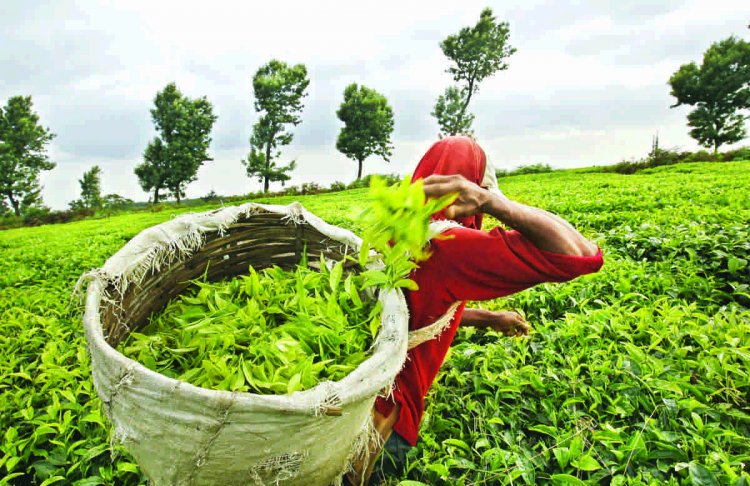Tea companies to witness 8 pc dip in revenue on decline in exports: Report
The tea industry is likely to witness an 8 per cent year-on-year decline this fiscal due to decreasing export volume following the rise in supply from Sri Lanka. The operating profitability of the industry will fall for the second year in a row, shedding 100 basis points (bps) to 5 per cent due to lower realisation, Crisil Ratings said in a report.

The tea industry is likely to witness an 8 per cent year-on-year decline this fiscal due to decreasing export volume following the rise in supply from Sri Lanka. The operating profitability of the industry will fall for the second year in a row, shedding 100 basis points (bps) to 5 per cent due to lower realisation, Crisil Ratings said in a report.
Profitability had fallen 150 bps last fiscal, primarily because of an increase in wages, the report said, adding that in FY23, wages that constitute 20 per cent of total input cost were hiked by 15 per cent. However, low leverage and negligible capital expenditure (capex) will keep credit profiles stable, the report stated. The tea industry will report 8 per cent year-on-year degrowth in revenue this fiscal, led by a decline in export volume, the agency said.
"Domestic demand, which accounts for 82 per cent of sales volume, should remain steady at 1,100 million kg this fiscal. However, exports, which make up 18 per cent by volume and 30 per cent by value, may slide 12 per cent year-on-year to 200 million kg. Last fiscal, the export volume had increased 14 per cent due to lower production in Sri Lanka, a major tea exporting country," Crisil Ratings Director Nitin Kansal said.
India, with a share of 11 per cent, is the fourth-largest tea exporter after China, Kenya and Sri Lanka. This fiscal, increased supply of Sri Lankan tea will impact demand for Indian produce as their production is expected to rebound following better availability of fertilisers and pesticides, said the report. Sri Lanka predominantly produces orthodox tea, which sees good demand globally because of its quality, and the country accounts for 50 per cent of the global trade.
This will lower the realisation of Indian tea companies, with domestic production seen stable at 1,350 million kg this fiscal. The consequent decline in operating profitability will reduce cash accrual by 40 per cent this fiscal, the Crisil Ratings report noted.
"Low capex intensity and stable working capital cycles will keep borrowings under control. So, the capital structure of tea companies would remain stable, with gearing expected below 0.50 times as of March 31, 2024, in line with the historical trend. Healthy balance sheets will ensure comfortable debt protection metrics, lending stability to credit profiles," Crisil Ratings Associate Director Argha Chanda said.
Hence, despite weak operating performance, interest coverage will remain over 3 times this fiscal, it added.



 Join the RuralVoice whatsapp group
Join the RuralVoice whatsapp group







































